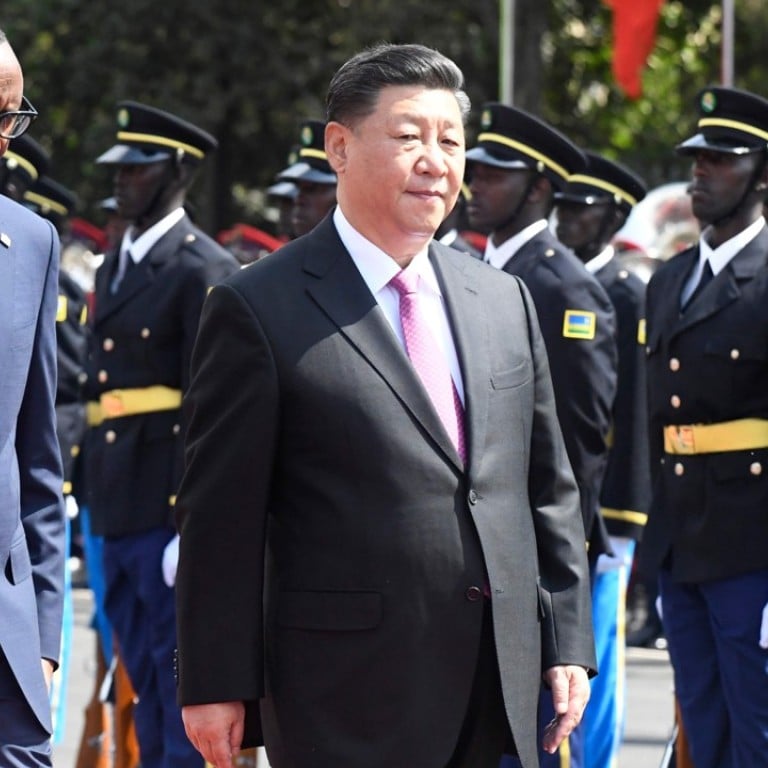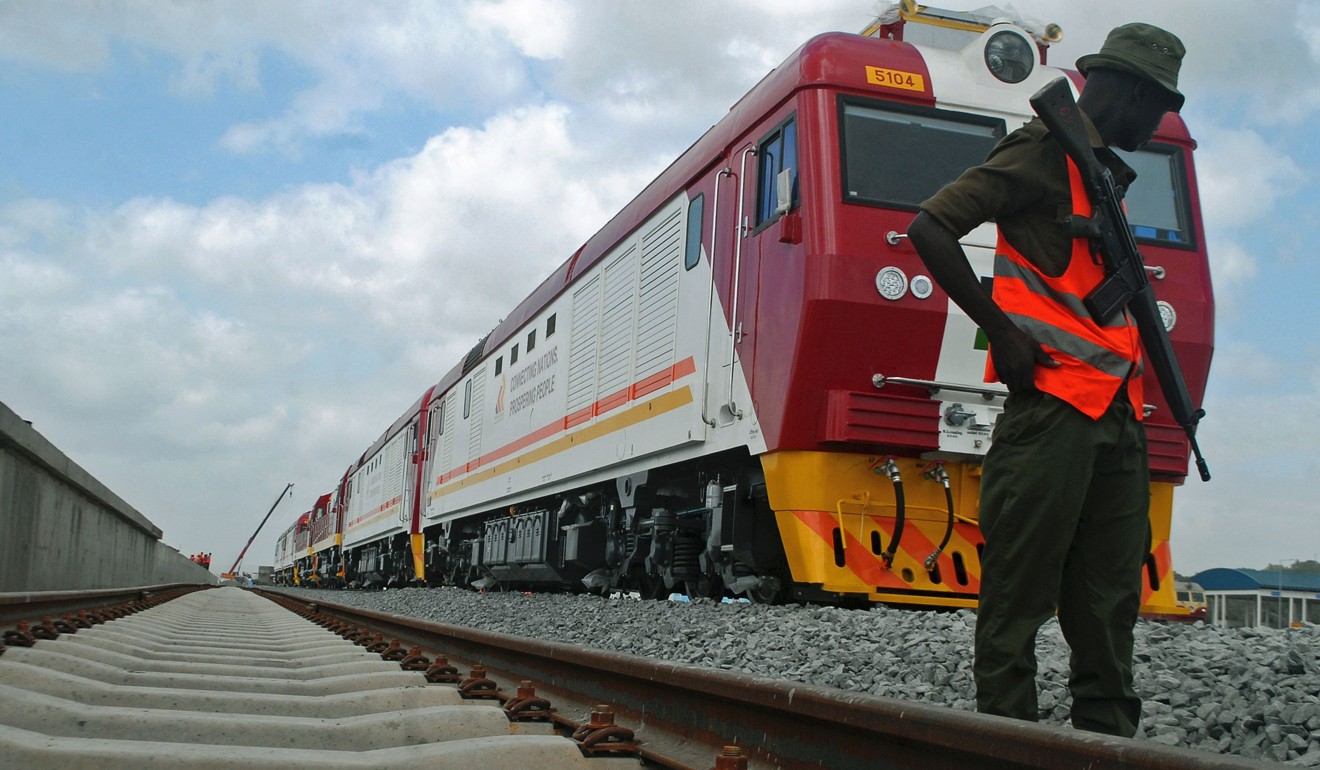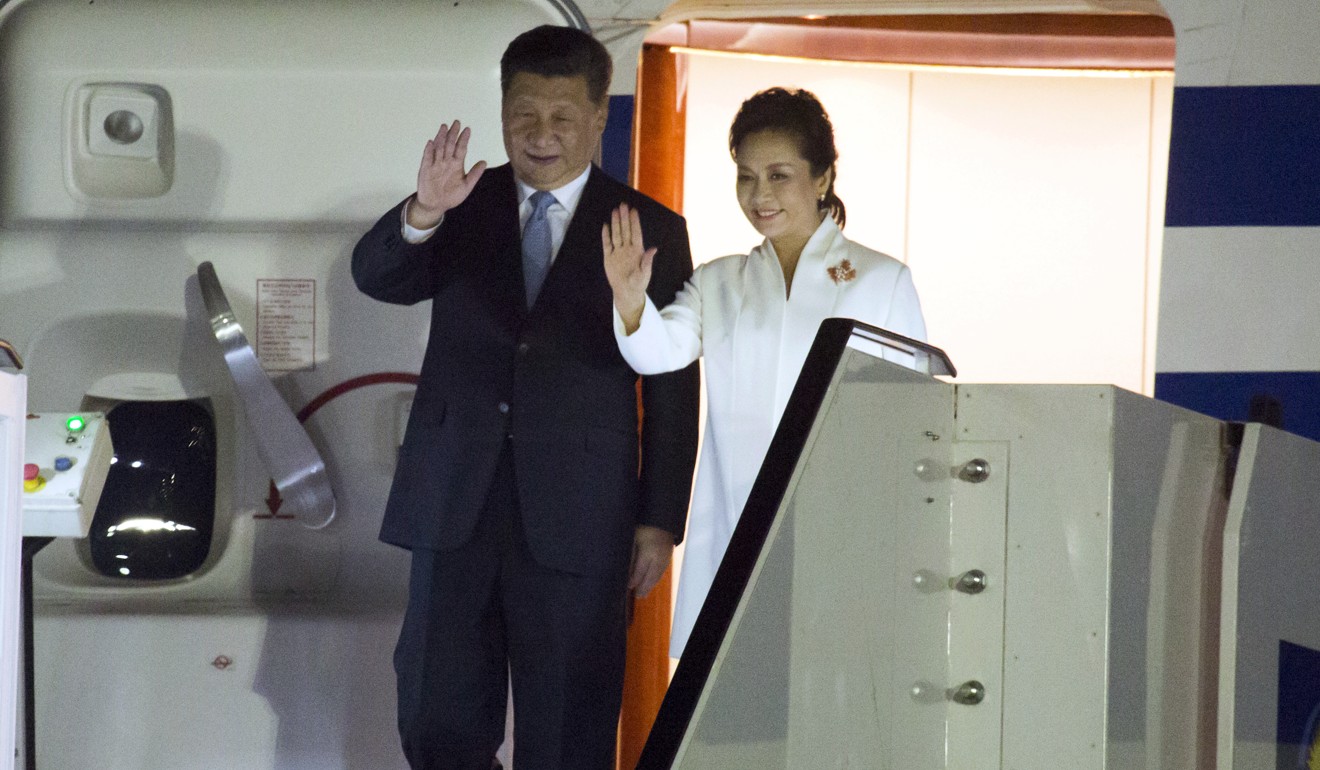
China and Rwanda to seal belt and road deals on Xi Jinping’s strategic influence tour of Africa
Beijing is trying to have stronger engagement with countries with influence on the continent, observers say
China and Rwanda are expected to sign more than a dozen trade and investment deals during Chinese President Xi Jinping’s state visit as Beijing seeks to cement its strategic influence in Africa and the Middle East.
In addition to cooperation pacts on defence, the two sides were expected to sign 15 deals ranging from trade to infrastructure under the umbrella of Xi’s “Belt and Road Initiative” on Monday.
The agreements would include visa exemptions for diplomatic and service passport holders, cooperation on geological surveys and concessional loans to fund key road projects, Rwanda’s The New Times reported.
But Rwandan State Minister of Foreign Affairs Olivier Nduhungirehe told news portal The EastAfrican earlier this month that a deal to finance a planned standard gauge railway linking Rwanda to the Indian Ocean was not on the cards.

After meeting RwandanPresident Paul Kagame on Monday, Xi is expected to visit a memorial for victims of Rwanda’s 1994 genocide, in which more than 800,000 people were killed.
Xi and his wife Peng Liyuan arrived in Rwanda on Sunday night after a stop in Senegal, the first African country on a tour that Chinese analysts say will extend the belt and road to the Atlantic Coast. Xi and Peng head to South Africa for a BRICS (Brazil, Russia, India, China, South Africa) summit on Wednesday.
Red-carpet welcome for Chinese President Xi Jinping in United Arab Emirates, ‘gateway to Middle East’
“So far the Belt and Road Initiative projects [on the continent] largely only cover East Africa,” said Ding Yifan, a former senior government researcher now at Tsinghua University’s National Strategy Institute. “The visit could reaffirm China’s cooperation policies with West African countries.”

Cheng Cheng, an associate research fellow at Renmin University’s Chongyang Institute for Financial Studies, said the selection of Senegal, Rwanda and South Africa reflected China’s efforts to expand its strategic influence through countries with influence in various regional organisations.
“Senegal is the chair of the New Partnership for Africa’s Development, Kagame is chairman of the African Union this year, and South Africa will host the BRICS summit. These three countries have their own significance in the region,” Cheng said.
Ding said that with a common view on free trade and amid turmoil between the United States and its trading partners, the five emerging BRICS markets would seek to unite further against protectionism.
In the latest move to present a united front, BRICS finance ministers agreed to “fight against trade protectionism together”, according to statement released after a meeting on the sidelines of the Group of 20 gathering of finance ministers and central bankers in Buenos Aires.
What to know about China’s ties with Africa, from aid to infrastructure
Chinese Finance Minister Liu Kun told his BRICS counterparts that as the global economy faced increasing uncertainties and instability the bloc should “firmly support economic globalisation and multilateralism and unequivocally oppose unilateralism and protectionism in any form”.
François Gamet, head of Asia for Standard Bank Group and CEO of Standard Advisory (China), said the summit might give the five countries the chance to discuss a response to rising global protectionism and unilateralism.
“The BRICS summit is therefore timely, providing an opportunity for China and the other leading global emerging markets in BRICS to further add their collective voice to the discussion through building stronger solidarity and cooperation among the members of the association and through pushing for a larger collective role in global affairs,” Gamet said.
Additional reporting by Bloomberg

